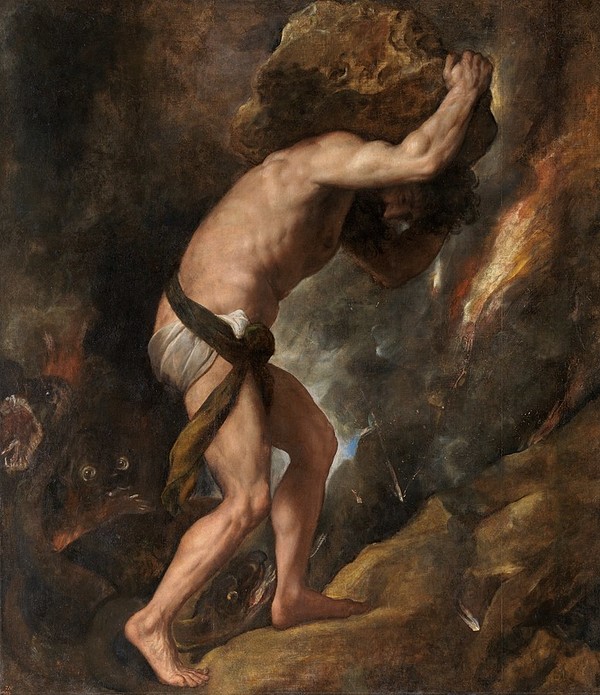During the first years of the pandemic, the famous novel <La Peste> (The Plague) made the bestseller list once again. <La Peste> depicted the many reactions to a deadly plague irrespective of rank, wealth, or even good and evil. But among them, it was the ones who kept their hopes up to revolt against the plague and to fight for life that the author, Albert Camus showed admiration. Besides this novel, Camus shaped the figure of a rebellious man in his works including <L'Étranger> (The Stranger) and <Le mythe de Sisyphe> (The Myth of Sisyphus), and above all, through his own actions in life.

Childhood in Algeria
Albert Camus was born a Pied-Noir of Mondovi, Algeria, in 1913. His farmer father died in battle during World War I, leaving Camus having to grow up in the slums. He was a high school football player and a philosophy student at the University of Algiers, but his tuberculosis forced him to give up football and his studies. Instead, he worked as a car mechanic, newspaper reporter, and a tutor. Camus' childhood was marred with difficulties, but it is said that he was a man of optimism. He was cynical, but quippy and playful at the same time. He was popular among women as a good dancer and conversationalist, for he was a playwright and actor at the Theatre du Travail. Camus turned his tough childhood into nourishment as a writer. Partly it was thanks to Jean Grenier, his professor and literary mentor who Camus expressed gratitude and respect throughout his life. But above all, his emotional attachment to the beautiful nature of Algeria was his savior. The Mediterranean coast full of crisp summer sunshine and salty sea breezes also became the setting for many of his works.

The Absurdity of War and Life
At 22 years old, Camus joined the French Communist Party (PCF) by Grenier’s advice and started his political actions, standing for the left-wing social movement against the colonial system. In 1938, when France was occupied by Nazi Germany, he volunteered to join the army but instead became a Resistance journalist after being ruled unfit due to his tuberculosis. From 1944, he served as Editor of the French Resistance newspaper Combat in Paris. Camus proclaimed that "often a country's value is valued by its media," and advocated high-quality journalism. Camus strongly believed that a country's media is the voice of that country, and that journalism should raise national status by raising the level of speech to the fullest. Four years later, Camus left Combat due to internal conflicts. But Combat at the time of his stay was one of the few papers which expressed France's aims of resistance, unlike the majority that served as an informant of Nazi Germany's occupation. At that time, Camus also interacted with existentialist philosopher Jean-Paul Sartre and other Parisian intellectuals. However, unlike the mainstream which often supported communism, Camus gradually turned to idealism, moralism, and anti-communism, eventually being expelled from the PCF and becoming the maverick of the literary world. Furthermore, Camus was criticized by both France and Algeria for opposing Algeria's independence but insisting on equal treatment with France (for the sake of his mother in Algeria), which goes back on his anti-colonial belief.
Camus was socially isolated, but even his personal life was rocky. He divorced his first wife due to her drug addiction, and with his second wife he had children, but continued an extramarital relationship. However, the experience of witnessing the social and personal absurdities, unwanted war, his illness and isolation, and rebelling against it all, had a profound impact on his writing. In fact, during this period, representative works of his absurdism such as <L'Étranger> (1942) and <Le mythe de Sisyphe> (1942) were published.

Absurdism: Can a Meaningless Life Be Worth Living?
“My mother died today. Or maybe yesterday; I don't know,” is the famous opening line of <L'Étranger>, the piece of work praised as the essence of existentialist literature. Our society does not condone someone who does not grieve for his mother's death. However, the protagonist Meursault is indifferent to his own life and even to his mother's death, just like the rest of the world where a single person's death does not change anything at all. Meursault more or less condemns himself after murdering an Arab, by saying “The sun made me do it.” Even after being sentenced to death for his crime, he refuses to turn to religion or redemptions and accepts it calmly. No one fully understands Meursault, and neither does he communicate with the world. This is because Meursault was too honest with his thoughts and feelings. Sartre’s evaluation of Mersault was that he is "a person who is willing to die for the truth, without taking any heroic attitude."
Meursault is a projection of we the people, who are living a life full of absurdities. “Absurdity” is the state where one’s meaning of life is lost due to lethargy, or boredom, which is a resistance of the mind to his monotonously repeated daily life. Absurdity comes from the confrontation between humans seeking rationality and the world of irrationality. In retrospect, we are quite used to the absurdity of our lives. Both World Wars left nothing but ashes, shattering the romantic optimism of human rationality and the future in the 20th century. Camus' solution to the anger and sense of loss caused by such absurdity was to rebel. It was to acknowledge the existence of absurdity as it is without escaping reality or rising above it, but to be faithful in his life of rebelling against absurdity. Camus explains this in more detail in his essay <Le Mythe de Sisyphe>. In Greek mythology, Sisyphus falls to the underworld for deceiving the mighty gods. He is punished by being forced to roll a huge rock up the steep hill of Tartarus, but the rock would roll down every time it neared the pointy top. Sisyphus’ labor is pointless since the punishment will last forever, and this situation of his can be seen as “absurd.” How should Sisyphus embrace his existence, deprived of hope of emancipation? Camus suggests that “one must imagine Sisyphus happy,” despite the endless punishment. Looking at the stone rolling down the mountain again, Sisyphus would take pride in his courage, strength, and life, capable for pushing the rock up again. The happy Sisyphus proves how useless human efforts are when faced with the absurdity of being incapable of completely achieving what he wants, but at the same time refers to how great a human being is with the will to confront the absurdity.

Camus’ Death, and His Influence in the Modern World
In 1957, Camus won the Nobel Prize in literature for his novel <La Peste>. Enduring tuberculosis which recurred with the publication of <L'Étranger>, he left Paris and devoted himself to writing in Lourmarin, a small rural town of France. However, on January 4th, 1960, on his way to Paris, Camus died in a car accident, a collision with a roadside tree. In his dying arms was the unfinished manuscript of his autobiographical novel, <Le Premier Homme> (The First Man). It is quite ironic that he once said in an interview that "the most absurd way to die is in a car crash.” Camus died at the young age of 47 but made an unrivaled achievement in literary history. Despite his opposition, he is considered a representative figure of existentialist philosophy for his achievements in presenting new thoughts and contributing to the popularization of existentialism among young Western intellectuals, who despaired of rationality after the World War. Camus opposed Algeria's independence, so his beloved hometown of Algeria thoroughly erased his traces. Instead, he is laid to rest in Lourmarin, remaining to this day as one of the most celebrated writers by the French.
Camus is a beloved writer in Korea as well. Hwa-Young Kim, a professor at Korea University who received his Ph.D. for his research on Camus, attributed this to the fact that Korea experienced war around the same time as France. He further noted that the ethical directivity, underlying affirmation of human beings, and love for Mother Nature of Koreans are similar with Camus’ attitude of moralists and humanists. Camus' philosophy of life's lethargy, absurdity, and his presentation of a new role model may be a valid story for our lives, across long times and distances.

